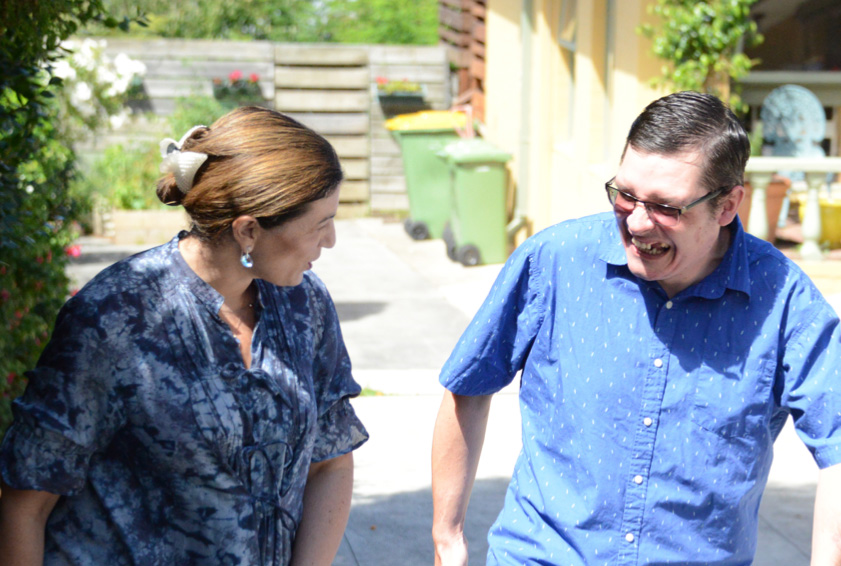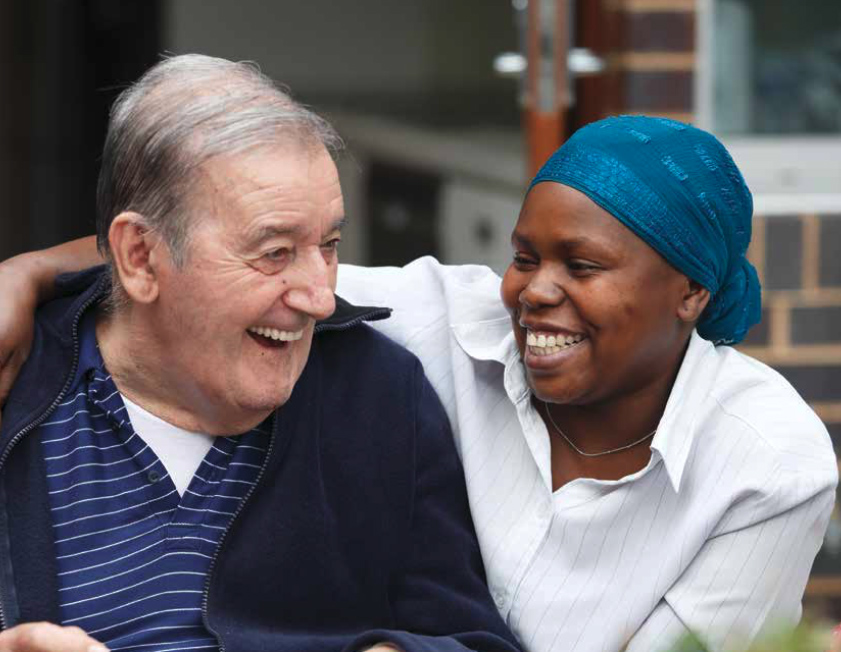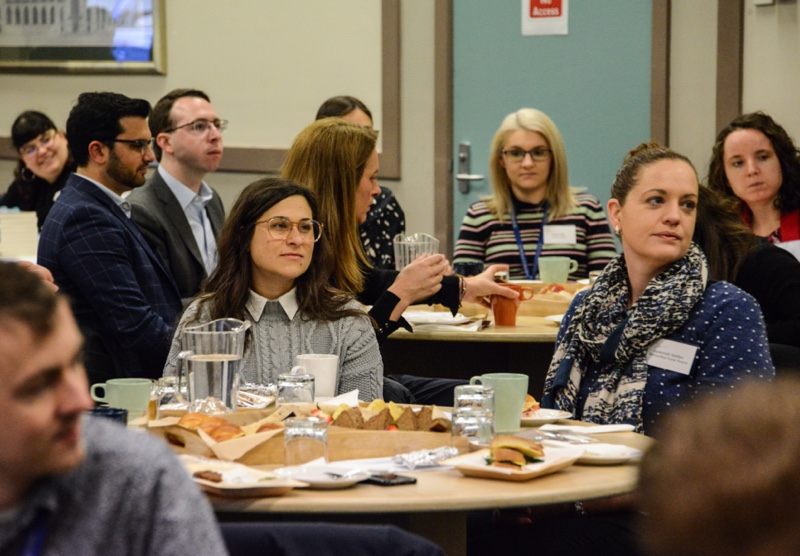Catholic Social Teaching is a framework for social analysis and action. It builds on the teachings of the Gospel in light of the experience of the church and society over the centuries. Its core principles include:
- the respect that is due to every person,
- the bonds that we share with all of humanity,
- the centrality of policies that serve the common good, rather than the interests of one part of society, and
- the importance of self-determination, within a supportive environment.

‘In our Catholic tradition, when we talk of preparing people to share more effectively in the mission of Jesus, we speak of “formation”. Formation is much more than training and education because it is about the internalisation of values, attitudes and ways of seeing, and the maturation of faith. It is something that we do in cooperation with God. Formation seeks to develop in us sensitivity to where God is leading our lives and our mission.’
FR STEVE CURTIN SJ QUOTED IN EDMUND RICE EDUCATION AUSTRALIA ‘FORMATION IN IDENTITY’ SERIES, 2012
Engaging with Mission
How can Catholic agencies, which continue to make present and active the transforming mission of Jesus, achieve maximum impact on the society around them as providers of high quality services and as change agents with an alternative vision of justice and compassion?
It is surely the priority they give to Catholic Identity and Mission that provides Catholic health, education and community services with a unique edge. Ensuring that the innovation, imagination and passion which leaders, staff and volunteers bring to their Catholic Agencies is always in dialogue with the Gospel and their originating story and heritage, Catholic organisations will continue to make the unique contribution to the common good which has been their hallmark.
Health, education and community service organisations in the Catholic tradition, have been pioneered by leaders whose vision and commitment forged strong and innovative institutions able to play a very significant, transformative role in the life of local communities, the states and the nation. Their vision sprang from a conscious and deliberate identification with the mission of Jesus concretely played out through the community of the Church.
The role of leading and inspiring these Catholic organisations has passed today to lay leaders who are seen by their sponsoring body, whether a Diocese or a Religious Congregation, as genuine partners in the mission of Jesus as this is expressed through the services provided in the name of the sponsoring body.
Ensuring that mission remains the ‘senior partner’ in the operation of Catholic organisations, and that these agencies live out their mission from a strong sense of Catholic identity, requires good formation.
‘Those who work for the Church’s charitable organisations must be distinguished by the fact that they do not merely meet the needs of the moment but dedicate themselves to others with heartfelt concern, enabling them to experience the richness of their humanity. Consequently, in addition to their necessary professional training, these workers need a formation of the heart.’
Pope Benedixt XVI, Deus Caritas Est #31
Formation then, is about the engagement of the whole person, not just the intellect. Its goal is commitment to mission rather than just increasing knowledge. Within the sphere of the Church’s activities in health care, education and community services work, the provision of formation opportunities that engage the whole person and deepen commitment becomes central to the effectiveness of the mission as it is expressed through the particular works and services undertaken by each organisation.
Organisations are more powerfully present and effective in society the clearer they are about their own identity and the mission which flows from it: ‘Organising occurs around an identity…Once this identity is set in motion; it becomes the sense-making process of the organisation. In deciding what to do, a system will refer back to its sense of self.’ (Margaret J. Wheatley: Finding our Way: Leadership for an Uncertain Time).
Each Catholic agency will mould its Catholic identity in ways that express its own history and purpose, the charism of the Religious Congregation which forms its heritage and the realities and imperatives of the local, national and international environment of which it is a part. In this sense, although there are what might be termed ‘non-negotiable principles’ common to every Catholic entity which flow from Catholic teaching, for instance the principles of Catholic Social Teaching or various moral or ethical positions, nevertheless, identity and the mission that flows from it, are not static realities. Consequently, the formation processes that lead to greater understanding and commitment must also be dynamic and creative.

The process[of formation] is not an academic exercise by a few theological experts, but a process in which people in creating Catholic identity are themselves, at the same time, transforming both their lives and the world around them.’
Fr Gerald Arbuckle, Crafting Catholic Identity in Postmodern Australia
As observed earlier, the founders and pioneers of Catholic health, education and community service organisations did not derive their inspiration or motivation from some form of generic philanthropy but from a conscious and chosen commitment to continue to make present and effective in their own times, the mission of Jesus realised through the Church and characterised by the particular charism of their own Religious Congregation (Sisters of Mercy or Marist Brothers, for example).
Today, Catholic organisations find themselves in increasingly challenging and complex environments. Relationships with various government bodies, especially through contractual funding arrangements, and a market economy operating within a secular state which can often regard religious belief and values as marginal or even irrelevant, can provide great challenges to maintaining the centrality of Catholic identity and values. Moreover, staff recruited to work in Catholic agencies increasingly do not share the same belief system, are estranged from the Church or know little about it.
‘Our Catholic Agencies operate in an environment experiencing great change, where there are often tensions between maintaining both Catholic identity and viability, and between mission and business…’
Gabrielle McMullen, reflections on catholic identity and mission, 2011
As many writers on this subject have observed in various ways, mission must be the ‘senior partner’ driving and determining all decisions made throughout a Catholic organisation – planning decisions, business decisions, decisions regarding service provision and partnering with other agencies.
This will only occur if formation of all staff is a priority. Formation at various levels of responsibility, at various stages of organisational engagement, from those starting out to those who have been employed for many years, and at various levels of faith engagement or none are included. However, the ongoing and deeper level formation of Chief Executive Officers and senior staff is especially important. All members of Catholic agencies need to work together to create and maintain a strong shared vision and sense of identity but the CEO is unquestionably the most influential person in maintaining the focus on mission and values:
Just as the provision of services, advocacy or research are all greatly enhanced and often more effective through collaboration with other like-minded organisations, so too, Catholic Social Services Victoria believes that Formation around mission and identity can only be further enriched by the sharing of resources and skills. This web page not only provides a compendium of useful resources but is also an invitation to our Catholic Agencies to engage regularly in ‘formation conversations’ and exchange ideas and resources which will mutually benefit us all.
Also see article by Paul Oslington, Professor of Economics at Australian Catholic University.
‘Mission will not have the upper hand if the CEO does not have a disposition for Catholic identity.’
Cath Garner, CHA Mission in Focus series

Join our mailing list
Learn more about formation opportunities within the Catholic social services sector and keep up to date with latest news, information and other upcoming events.
We respect your privacy, as outlined in our privacy policy.